Overview
At the Europa Viva 25 conference, Member of the European Parliament Afroditi Latinopoulou delivered a forceful address titled “Enough is Enough,” invoking themes of homeland, religion and family while asserting a political legacy tied to the late American activist Charlie Kirk.
The speech opened by criticizing European institutions for what Latinopoulou described as disrespect toward conservative figures, declaring that “they denied us even a one minute silence” and contrasting that decision with commemorations granted in other cases. She framed the moment as part of a larger cultural and civilisational struggle, repeating the refrain “Enough is enough.”
Identity, Family and the Vision of a Conservative Europe
Latinopoulou repeatedly emphasized identity as foundational: “Without homeland, without identity, without faith, there cannot be a future.” The address linked personal aspirations—marriage, home ownership, safe neighborhoods and good schools—to broader political goals, citing a passage attributed to Charlie Kirk: “I wanna be able to get married, buy a home, have kids, allow them to ride their bike till the sun goes down, send them to a good school, have a low crime neighborhood.”
That vision was framed as threatened by demographic and cultural change. Latinopoulou warned that “Europe is committing suicide” and accused current policies of allowing a supposed takeover by Islamist influence: “They will impose burkas and mosques on our children,” she said, urging listeners to reject that outcome with the refrain, “Is this what we want? No. Enough is enough.”
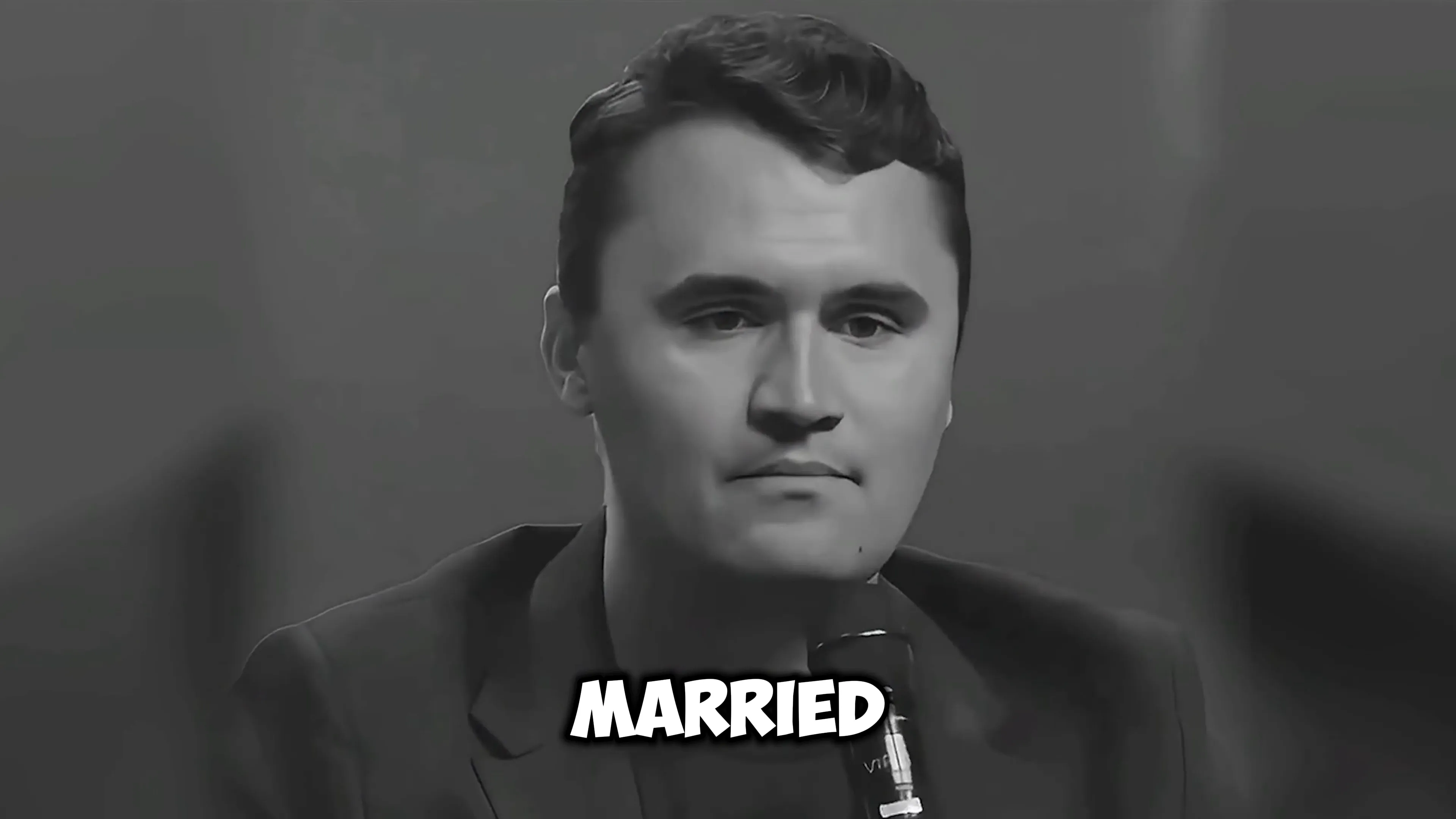
Charlie Kirk’s Cited Arguments and ‘Macro Islam’ Claim
The speech incorporated a quoted segment attributed to Charlie Kirk on cultural substitution and geopolitics. Kirk’s passage questioned climate policy and secular trends as conduits for replacing Christianity with a “substitute form” of earth worship, anti-racism and, ultimately, what he labeled “macro Islam.” Kirk listed three reasons he considered Islam incompatible with Western values: opposition to freedom of speech, freedom of religion, and separation of mosque and state.
Latinopoulou used that critique to underline the perceived incompatibility between European traditions and what she characterized as growing Islamist influence. The rhetorical arc moved from cultural diagnosis to a call for immediate policy responses: “Arrests and mass deportation. Closed borders. No asylum permits. Closure of mosques. Ban of the burka. Islam out of the Christian Europe. OUT.”
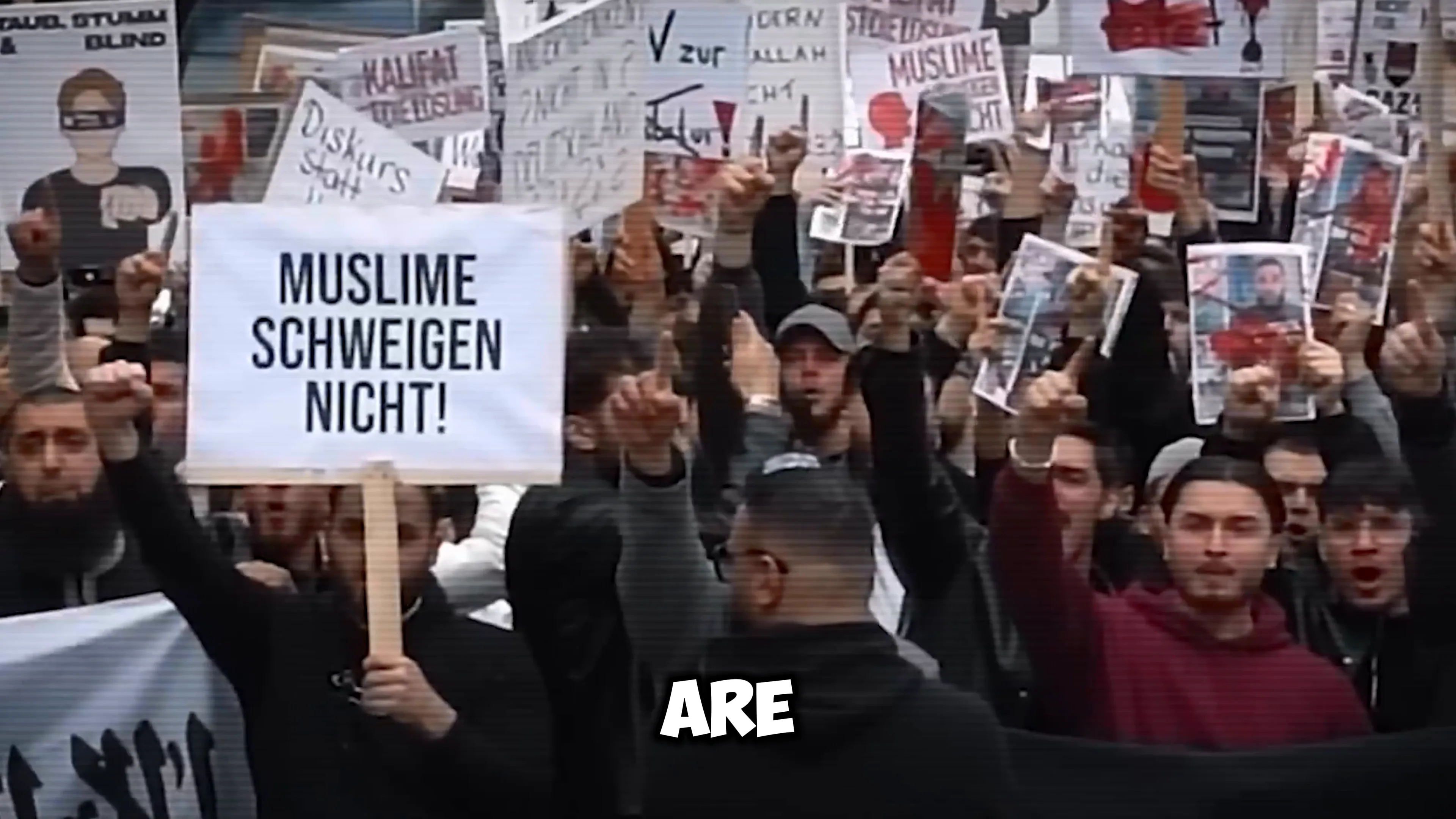
Martyrdom Narrative and the Call to Continue a Legacy
Latinopoulou framed Charlie Kirk as a martyr figure and invoked his legacy repeatedly. She declared that “Each one of us inside this hall, and millions outside, is now Charlie Kirk,” and described his fate as the result of a polarized political environment in which “when their arguments don’t do the trick, bullets speak.“
She accused mainstream media and transnational elites of labeling patriotic defenders as far right and of celebrating his death. Latinopoulou urged institutional recognition of Kirk’s memory, proposing that “September 10th must be designated as Charlie Kirk Remembrance Day in the European Union as well.“
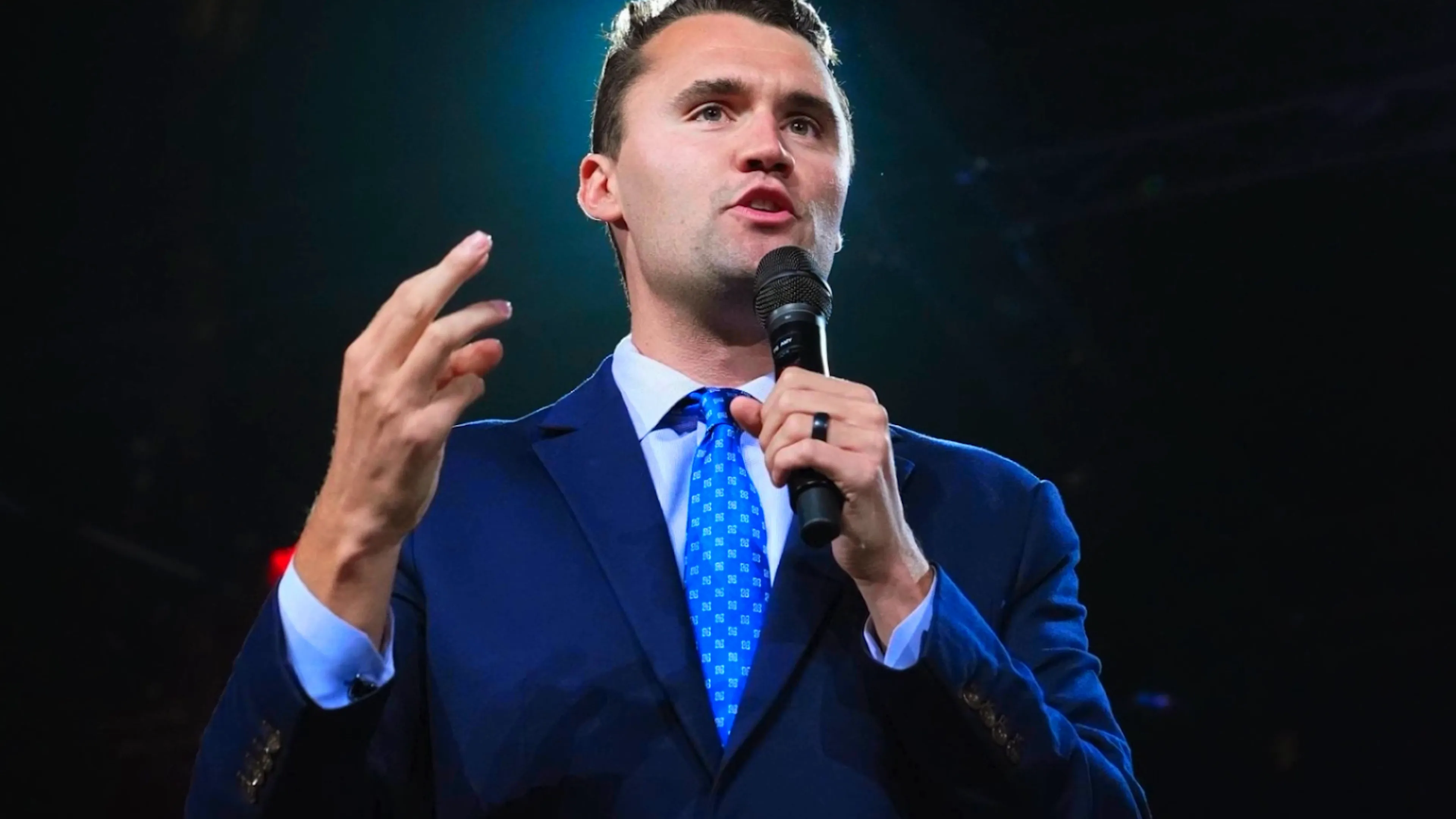
Policy Demands and Exclusionary Rhetoric
The address advanced a set of concrete policy prescriptions aimed at halting migration and curtailing perceived radicalising influences: immediate expulsions of undocumented migrants, closed borders, bans on asylum permits, closure of mosques and a ban on the burqa. Latinopoulou also called for an “explicit ban of woke propaganda in schools” and demanded protections for children from perceived ideological influence.
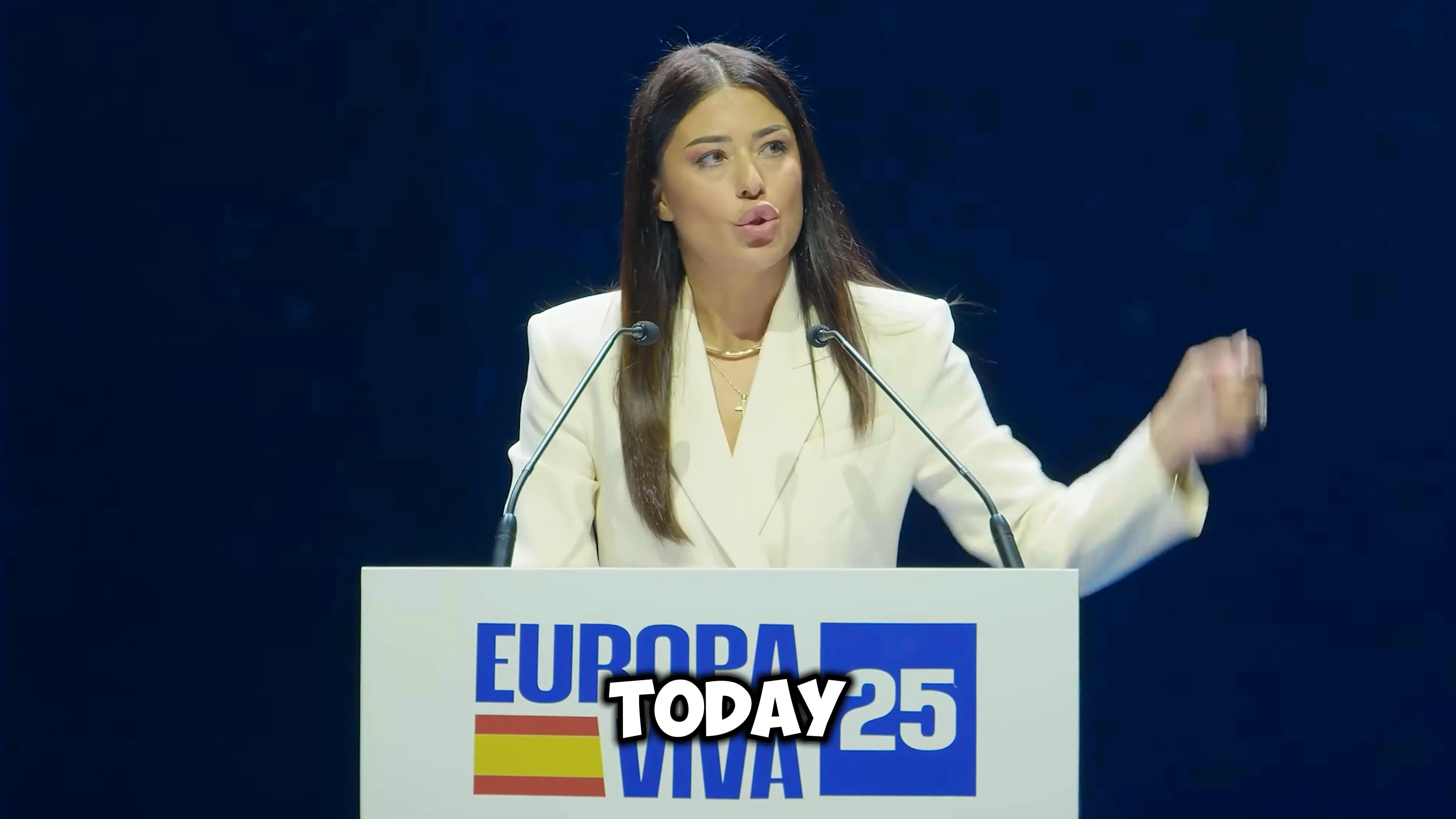
In a notably exclusionary passage, Latinopoulou articulated a conditional welcome built on cultural conformity: “Free, proud, white Christians who love for every fellow human being provided he accepts our values.” She concluded those policy sections with a blunt message to those who do not agree with that conception of Europe: “If you don’t like it, we don’t care. Nobody invited you and we do not want you here. Back to your countries yesterday.“

Reactions and Political Context
The speech connected its rhetoric to broader European political currents by praising like-minded figures—naming Santiago Abascal as “the voice of Spain that does not surrender“—and by blaming current leadership for allegedly creating unsafe urban enclaves and social fragmentation. Latinopoulou repeatedly returned to the triptych “Homeland, religion, family” as both diagnosis and programmatic slogan.
Delivered at Europa Viva 25, the address is indicative of a resurgent nationalist and identitarian strand within parts of the European right. Its combination of cultural alarm, policy prescriptions and ceremonial commemoration (the proposal for a remembrance day) signals an effort to translate rhetoric into institutional influence and ritual observance.
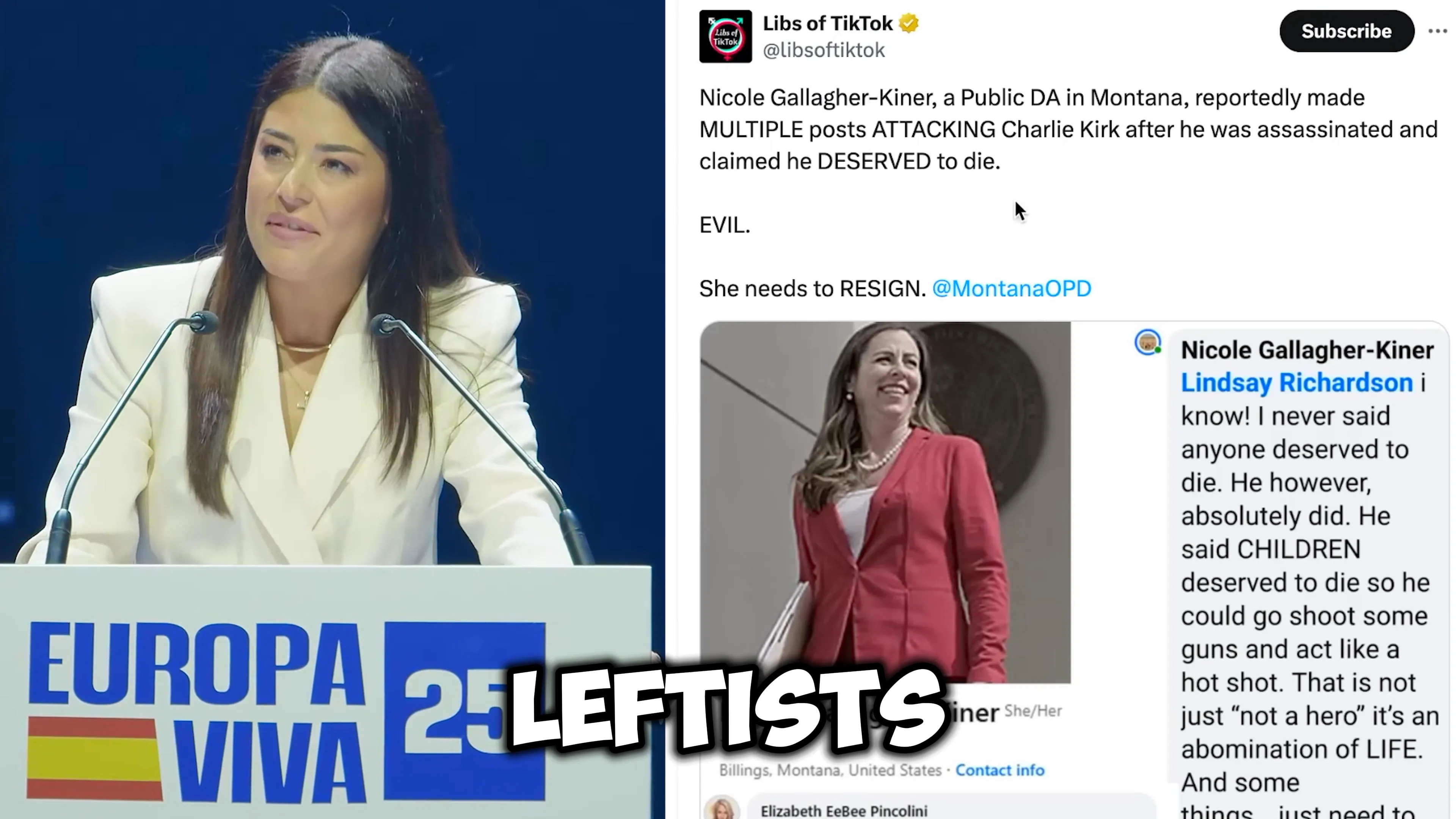
Conclusion
Afroditi Latinopoulou’s “Enough is Enough” speech at Europa Viva 25 marshaled emotive language, direct policy demands and a martyrdom narrative to press a conservative vision for Europe’s future. It emphasized identity-based belonging, proposed immediate enforcement measures on migration and cultural expression, and sought to canonize Charlie Kirk as a symbol for that movement.
The address is likely to deepen debate across European politics about migration, freedom of expression, secularism and the limits of acceptable public discourse. Supporters may rally around the identity-focused program and calls for strict migration controls, while critics will challenge the speech’s exclusionary language and the claims used to justify its policy agenda.
